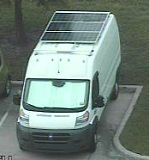Mostly the title. I have a few items with built in rechargeable batteries that I don’t need to use very frequently. How do I keep the batteries in those items from going bad? Is there a preferred way to store them for a few weeks in between uses? Thanks in advance.
Most cordless devices have a Lithium-Ion battery in them. For Li-Ion storage you want to keep batteries around 50% charge in a cool environment. This maximizes shelf life. For example a Li-Ion battery stored at room temperature with a full charge loses about 20% capacity per year. At 40% charge (ideal) stored in a cool environment it loses about 5% capacity per year.
If you can remove a Li-Ion battery it’s better for storage. Charge to 40% (3.85V measured after resting) and put in a refrigerator. This will put capacity loss under 5% per year. Don’t put them in a freezer, that will damage them.
Lead-acid and NiMH batteries have a different ideal storage condition. For 12V lead-acid you want to store them at 100% charge and trickle charge overnight at 13.80V every six months. Store at room temperature. For NiMH you want to charge to full then store at room temperature until needed.
I assume these batteries are lithium ion because it’s all random consumer grade items from e.g., Amazon. I’ll check to see which ones have a battery life indicator on them and charge them all to as close to 40% capacity as I can get. Thank you for the advice :)
Li-Ion batteries are pretty ubiquitous anymore, the majority of devices use them. There’s still some that use NiMH. You should be able to look up specs or user manuals for any device to find out the type of battery it uses.
NiMH is actually a better solution as it has much longer cycle life and shelf life. Plus NiMH batteries don’t carry the fire hazard of Li-Ion batteries (if you’re not educated about that batteryuniversity.com is the place to go for all things battery). Even so there’s a huge difference in energy density. NiMH batteries are a lot bigger for the same energy capacity. So engineers seem to be obsessed with battery size over everything else even though NiMH is a safer more robust solution.
A few weeks is fine for most devices to not take special precautions. Mostly just make sure they’re stored not completely dead, but not completely full either- generally 50-60% charged prolongs their life the best. Then charge before you’re ready to use.
Really, modern battery chemistries are so advanced that even just charging them and tossing them in the drawer will be fine. It’s not like ye olden days of ni-cad batteries that were finicky as hell and had to be charged perfectly or else they took a memory set and became useless.
I have a percussion massager that will only hold a very small charge after about 6 months (it was a Christmas present). I assumed I stored the battery improperly because I’ve only used it infrequently since then. Maybe I’m wrong about that, I really don’t know, it might have just been cheaply made. I’ll try the ~40% charge for my other devices to be on the safe side. Thanks for the tips :)
yeah some cells are just built very poorly and will age out prematurely. It’s far too prominent nowadays with lowest-bidder manufactured E-waste that populates so many store shelves.
The main takeaway is don’t let discharge fully. Every couple of months, check charge level and if it’s under 20%, charge to about 60 for more storage.
If it’s just every few weeks, it should be fine as long as you don’t fully discharge and keep enough charge to be useful.
That could actually be where I went wrong in the past. I’ll make sure to store the items with a decent charge. Thanks :)
Assuming we are talking about lithium, they should be stored at about half full and at human-comfortable temps. The mfg may have specific recommendations.





